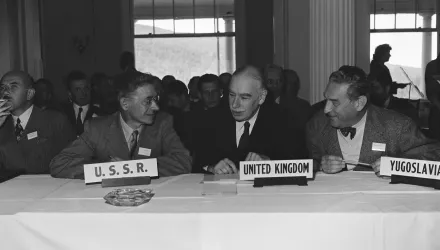International Security is America's leading peer-reviewed journal of security affairs.
Abstract
The George W. Bush administration’s national security strategy, which asserts that the United States has the right to attack and conquer sovereign countries that pose no observable threat, and to do so without international support, is one of the most aggressively unilateral U.S. postures ever taken. Recent international relations scholarship has wrongly promoted the view that the United States, as the leader of a unipolar system, can pursue such a policy without fear of serious opposition. The most consequential effect of the Bush strategy will be a fundamental transformation in how major states perceive the United States and how they react to future uses of U.S. power. Major powers are already engaging in the early stages of balancing behavior against the United States, by adopting “soft-balancing” measures that do not directly challenge U.S. military preponderance but use international institutions, economic statecraft, and diplomatic arrangements to delay, frustrate, and undermine U.S. policies. If the Bush administration continues to pursue aggressive unilateral military policies, increased soft balancing could establish the basis for hard balancing against the United States. To avoid this outcome, the United States should renounce the systematic use of preventive war, as well as other aggressive unilateral military policies, and return to its traditional policy governing the use of force—a case-by-case calculation of costs and benefits.
Pape, Robert. “Soft Balancing against the United States.” Summer 2005





